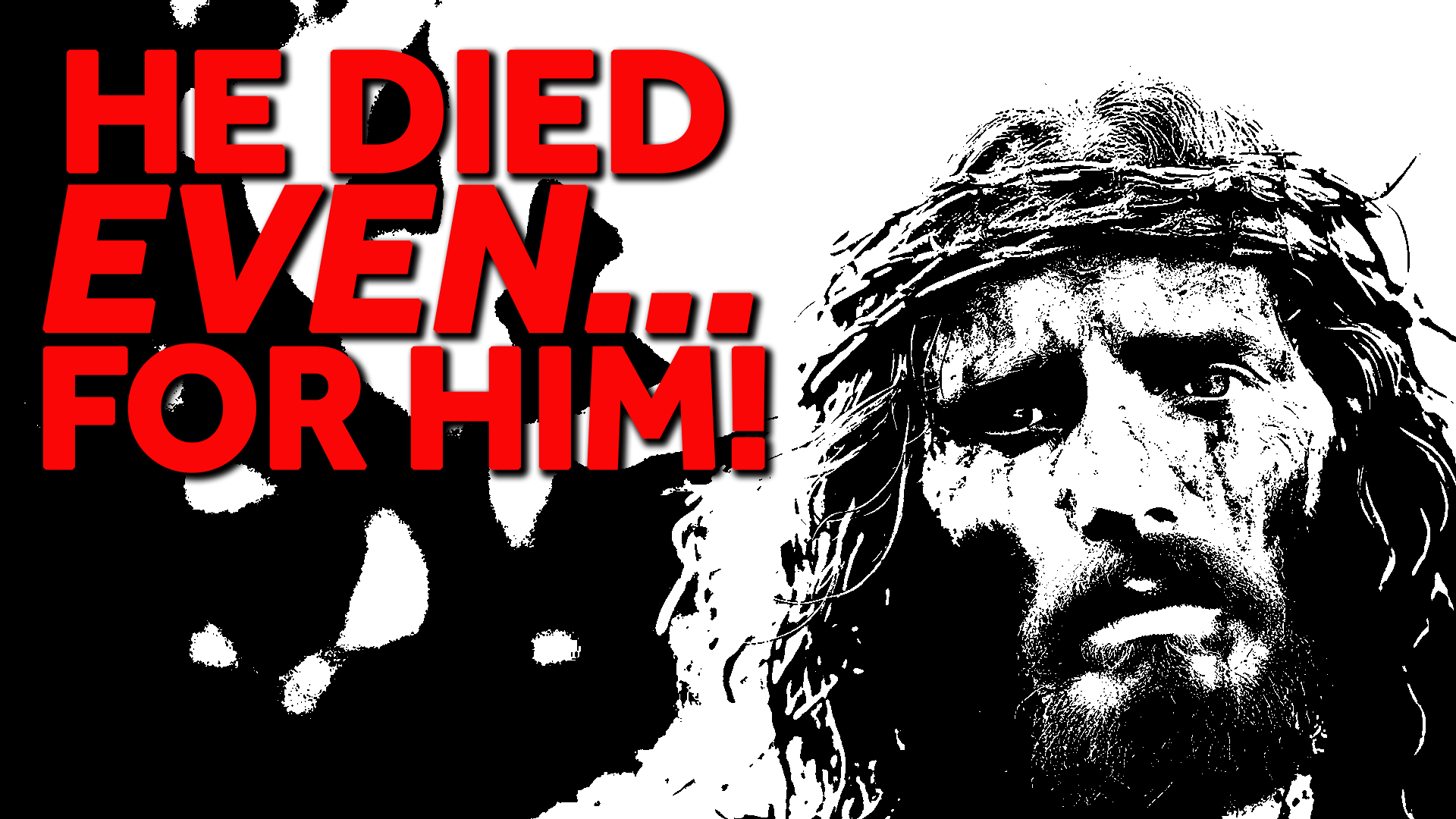October 22, 2024
Jason Bonnicksen

The following statement might sound and seem simple, but consider its profound nature: Without Christ, there would be no Christianity; and without the cross, there would have been no Christ. Jesus’ crucifixion and death on the cross is one of two, conjoined events that are the centrality of our entire belief. Our faith hinges on the events contained within three days spanning all of human history, beginning with the day Pilate ordered Jesus’ death.
Our Lord and Savior, Jesus Christ, who came down out of heaven for our benefit, exchanged his life so that we may inherit eternal life. He didn’t go to the cross for his own sake, but specifically for ours—for the whole world. One of the most quoted scriptures in the whole of the bible supports the church father’s claim. The Apostle John wrote:
If you’re old enough to remember, in the mid 1980’s, Lionel Richie and Michael Jackson wrote a song, sung by a chorus of musicians to bring awareness to the starvation epidemic in Africa. The song was called, “We Are the World.” (Now I have ya singing it, hahaha).
Now, I realize that song has little to nothing to do with the centrality of the cross, but consider a few of the lyrics. Richie and Jackson wrote: “We are the world; We are the children… We’re all a part of God’s great big family.” We are all part of the world, indeed. But to reconcile us to God, Jesus Christ our Lord chose to be tortured, to suffer death and to be buried. Consider the Apostle Paul’s words to the Christians in Rome: Read Romans 5: (1-5) 6–11
Paul was insinuating that most people aren’t willing to die for other people, unless those people are truly righteous. Of course, there’s exceptions (soldiers are known to protect one another and “take a bullet” for each other. First responders are willing to put their lives on the line to save others. But these are the exceptions, not the norm. Moreover, not many people would be willing to die for the ungodly. But Jesus did.
What are your thoughts about what Paul wrote, contrasting verses 7 and 8?
Beyond the historicity and validity of the Holy Christian scriptures, historians have proven that Jesus was a real man who was sentenced to death by crucifixion under the governorship of Pontius Pilate. Supposedly, even Pilate himself wrote of his encounter with Jesus.
Consider for a minute or two the writings of historians, such as Flavius Josephus, Tacitus, and Pilate himself. About Jesus, Jewish Josephus wrote:
Beyond the historicity and validity of the Holy Christian scriptures, historians have proven that Jesus was a real man who was sentenced to death by crucifixion under the governorship of Pontius Pilate. Supposedly, even Pilate himself wrote of his encounter with Jesus.
Consider for a minute or two the writings of historians, such as Flavius Josephus, Tacitus, and Pilate himself. About Jesus, Jewish Josephus wrote:
Writing about the rise of Christianity, Tacitus – who lived during the reigns of Nero, Titus, Vespatian, Domitian and few others wrote this:
Reportedly, Pontius Pilate wrote of his inner, spiritual turmoil for having sentenced Jesus to die. From the writings, it can be deduced Pilate held Jesus in high esteem. Whether Pilate wrote this account, these words are attributed to him, we can only speculate. However, the early Church father, apologist, and philosopher, Justin Martyr attributed the writing to Pilate himself in 160 AD). Here these words that Justin Martyr himself believed Pilate to write:
What stands out to you about Pilate’s letter to Emperor Tiberius?
The cross was brutal for all men, but especially Jesus. Notwithstanding the cross (which, should be enough), Jesus suffered not only death, but suffered prior to death. Consider the sequence of events that happened to Jesus on that fateful day.
Jesus said three words we read in English, just prior to giving up his life: “It is finished.”
Understanding Jesus meant: the propitiation for our sins, TALK ABOUT how you internalize what it means that Jesus suffered and died on your behalf so that you would be made righteous with God:
© 2024 Jason Bonnicksen Ministries. All rights reserved